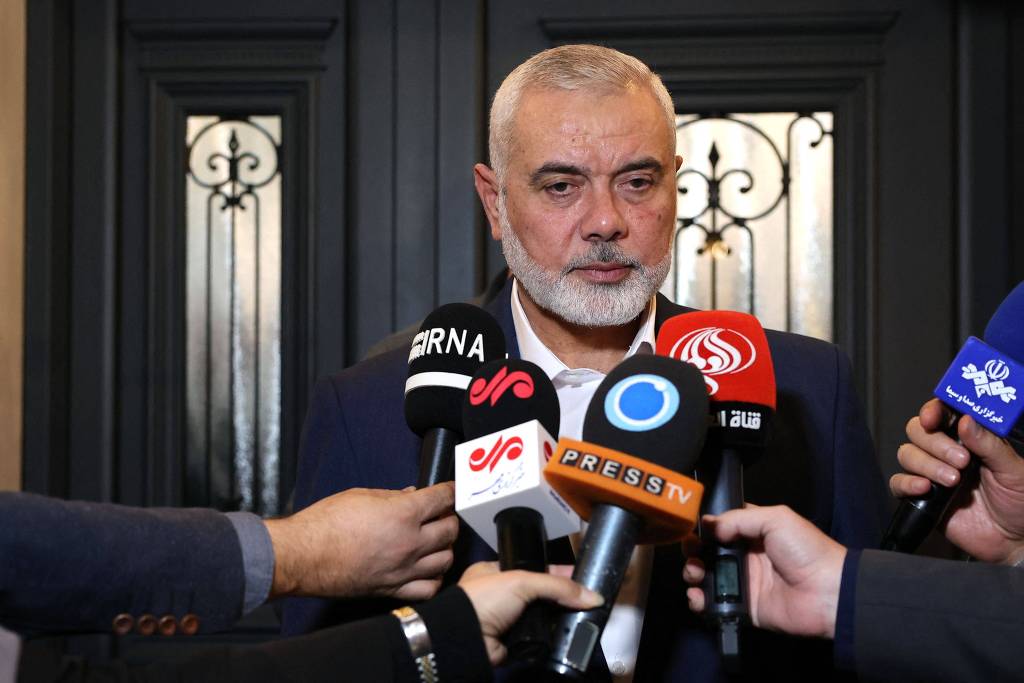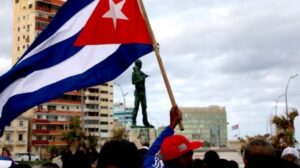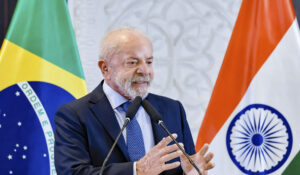
Published 07/31/2024 10:41 | Edited 07/31/2024 11:07
Israel’s far-right government has launched two attacks in less than 24 hours that could escalate the conflict in the Middle East into a regional war. The Iranian Revolutionary Guard Corps (IRGC) and Hamas confirmed on Wednesday (31) the death of the leader of the Palestinian group’s political office, Ismail Haniyeh, in an Israeli bombing in Tehran, the capital of Iran, hours after the inauguration of the country’s new president, Masoud Pezeshkian.
On Tuesday (30), the Israel Defense Forces (IDF) confirmed another attack on the Lebanese capital, Beirut, in an aerial bombardment that targeted Hezbollah commander Muhsin Shukr. Israel attributes an attack in the Golan Heights, occupied by the Jewish state, that left 10 children dead on a soccer field to the Shiite Islamic group, which operates in southern Lebanon. Hezbollah denies being the author of the attack.
The Israeli bombing of Tehran that killed Haniyeh occurred at dawn, at 2 am local time (7:30 pm Brasília time), just hours after the Persian country’s new president took office.
The attack is considered a humiliation for Iran, since Haniyeh was treated as a head of state and was in the front row at the inauguration event — almost next to the representative of Brazil, Vice President Geraldo Alckmin (PSB).
“The criminal and terrorist Zionist regime martyred our dear guest on our territory and caused us pain, but also prepared the ground for severe punishment,” the Iranian supreme leader wrote on social media platform X. “After this bitter and tragic event that occurred within the borders of the Islamic Republic, it is our duty to seek revenge.”
Defense Minister Yoav Gallant says Israel would prefer to avoid war but is “prepared for all possibilities.” Israeli Prime Minister Benjamin Netanyahu will convene the security cabinet in the coming hours as threats of revenge mount over Haniyeh’s assassination.
An Israeli government spokesman declined to comment on the death of the Hamas political leader. “We are not commenting on this particular incident,” David Mencer told a news conference.
The assassination, “a treacherous Zionist attack,” is a “cowardly act that will not go unpunished,” said Hamas leader Moussa Abu Marzouk.
Hamas still holds more than 100 hostages from the October 7 attacks, and the ceasefire process between Hamas and Israel is likely to stall, if not suspend altogether. Netanyahu has been the target of weekly protests over his failure to complete his mission of bringing the hostages home.
Palestinian President Mahmoud Abbas condemned the killing as a “cowardly act” and urged Palestinians to stand united against Israel. A week ago, his political faction, Fatah, signed a reconciliation agreement with Hamas in Beijing.
Hezbollah, for its part, expressed condolences following Haniyeh’s death and said the attack would make Iran-aligned groups more determined to confront Tel Aviv.
China said it was concerned. “We firmly oppose and condemn this assassination,” Chinese foreign ministry spokesman Lin Jian told a news briefing.
Russia warned of possible consequences of the attack in the region. “This is a completely unacceptable political assassination that will provoke a new escalation of tensions,” Russian Deputy Foreign Minister Mikhail Bogdanov told the state news agency RIA Novosti.
Israel bombs Beirut
The Israel Defense Forces attacked a Hezbollah building in Beirut, the capital of Lebanon, on Tuesday afternoon (30). The target was the operational chief of the Islamic group, Muhsin Shukr, who, according to the Jewish state, was killed. Hezbollah confirmed that Shukr was in the building, but did not mention any death.
The action was in retaliation for “targeting the commander responsible for the murder of children in Majdal Shams and numerous Israeli civilians,” the military said on its Telegram channel. The attack on Saturday (27) was attributed by Israel to Hezbollah, which denied responsibility and blamed the Jewish state’s anti-aircraft defense system.
Massive explosion in Dahiyeh, Beirut. Suspected Israeli attack targeting Hezbollah’s Shura Council. Al Jadeed provides footage below.pic.twitter.com/lDmmmqhmFr
— Gustavo Rebello (@Gu_rebel) July 30, 2024
According to the American press, the White House appealed to Netanyahu to avoid even attacking targets in Beirut, even though he had been authorized for a revenge operation by his war cabinet.
Hezbollah is a much more powerful group militarily than Hamas, having been founded by Iran itself in 1982 in the Shiite refugee camps of southern Lebanon, then under Israeli invasion.
Source: vermelho.org.br

